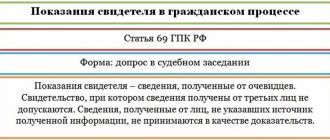A supervisory appeal in a criminal case to the Supreme Court of the Russian Federation is a way to appeal and review a court decision (sentence, ruling, resolution) that has entered into force. The highest court examines exclusively the legality of a judicial act. In fact, supervision is the last opportunity to change anything in the outcome of a criminal case. If it doesn’t help, only the European Court of Human Rights (ECHR) will remain.
In some cases, you can appeal to the Constitutional Court or consider the possibility of reviewing the case based on newly discovered (new) circumstances. However, in these situations, completely different grounds will appear, and we will be talking about new trials, and not about the revision of already issued judicial acts.
Grounds for canceling or changing the appealed decision in the supervisory order:
- Serious violations of the Criminal Code of the Russian Federation and (or) the Code of Criminal Procedure of the Russian Federation, which influenced the outcome of the consideration of the criminal case.
- The emergence of information that indicates a failure to fulfill the terms and obligations of a pre-trial agreement by the person with whom such a cooperation agreement was concluded.
In 2021 (no later than October), appeal and cassation courts will begin to operate in the system of courts of general jurisdiction. This circumstance will affect the procedure for appealing court decisions in criminal cases. The changes will affect supervision to a lesser extent. True, to get to this authority you will have to go a slightly different path than it was before and is still the case now.
Who can file a complaint
In accordance with Art. 401.2 and 412.1 of the Code of Criminal Procedure of the Russian Federation, the following may file a supervisory complaint:
- parties to the case: convicted, acquitted, their defenders and authorized (legal) representatives, private prosecutor, victims, civil plaintiffs and defendants in part of the civil claim, the decision on which is contained in the verdict;
- other persons whose rights, freedoms and legitimate interests were violated by court decisions;
- General (military, regional) prosecutor and his deputies.
Who files a supervisory complaint?
According to paragraph 1 of Art. 412.1, Art. 401.2 of the Code of Criminal Procedure of the Russian Federation, the right to file a supervisory complaint belongs to the parties to the process (convicted, acquitted, victims, including civil plaintiffs), and other persons whose rights were affected by the decision.
A complaint on behalf of these persons may be filed by their representative. For example, a representative who has received the appropriate notarized power of attorney can send a supervisory complaint to the RF Supreme Court on behalf of a person in prison (see resolution of the plenum of the RF Supreme Court dated May 20, 2005 in case No. 132p2005).
The Prosecutor General and prosecutors of the constituent entities of the Russian Federation can also apply for a review of the case by way of supervision.
Decisions of which authorities are appealed through the supervisory procedure
Attention: the described procedure is no longer relevant; it was in force before the entry into force of the law of November 28, 2018 No. 451-FZ (as amended on October 17, 2019), namely, before the launch of the work of cassation and appeal courts of general jurisdiction.
According to clause 3 of Article 412.1 of the Code of Criminal Procedure of the Russian Federation, complaints are sent to the Presidium of the Armed Forces of the Russian Federation regarding:
1. Court decisions adopted in the first instance that have entered into legal force:
- supreme courts of republics (territories, regions, joint-stock companies, cities of federal significance);
- naval (district) military courts,
if the appeal was considered by the Supreme Court of the Russian Federation.
2. Court decisions made on appeal:
- Judicial Collegium for Criminal Cases of the RF Armed Forces or the Military Collegium of the RF Armed Forces;
- Appeal Board of the RF Armed Forces.
3. Determinations of the Judicial Collegium for Criminal Cases of the Armed Forces of the Russian Federation or the Military Collegium of the Armed Forces of the Russian Federation, issued in cassation.
4. Resolutions of the Presidium of the RF Armed Forces.
Supervisory complaint in a criminal case
The supervisory appeal must be filed directly with the Supreme Court of the Russian Federation (by mail, in person or, from 01/01/2017, in electronic form).
By way of supervision, the Presidium of the Supreme Court of the Russian Federation may review court decisions that have received legal force, listed in paragraph 3 of Art. 412.1 of the Criminal Procedure Code of the Russian Federation of December 18, 2001 No. 174-FZ (hereinafter referred to as the Code of Criminal Procedure of the Russian Federation).
The main purpose of reviewing a contested sentence, order or decision by a supervisory court is to determine the extent of their compliance with the requirements of the law.
Requirements stated by filing a supervisory complaint may be satisfied (in whole or in part), and a decree, ruling or sentence that has gained legal force can be canceled or changed if:
- discovery by the supervisory court of significant deviations from the provisions of criminal and/or criminal procedural legislation that had an impact on the overall outcome of the consideration of the case materials
- identifying data that indicates that the person did not comply with the conditions or did not fulfill the obligations stipulated by the pre-trial cooperation agreement (clause 1 of Article 412.9 of the Code of Criminal Procedure of the Russian Federation).
An example of a significant violation of procedural law is the court justifying its decision with evidence declared inadmissible (clause 5 of the review of judicial practice of the Supreme Court of the Russian Federation No. 2, approved by the Presidium of the Supreme Court of the Russian Federation on June 26, 2015).
Deadline for filing a complaint
Currently, criminal proceedings do not regulate the time limit for filing a supervisory complaint. Thus, you can contact the Presidium of the RF Armed Forces:
- while serving a sentence;
- after release from prison;
- after a criminal record has been expunged.
At the same time, if we are talking about the revision of a judicial act on grounds that entail a worsening of the situation of the convicted person (acquitted or a citizen against whom the criminal case was terminated), then the period for appealing to the supervisory authority is limited to 1 year from the date of entry into legal force of the appealed decision (Article 401.6 Code of Criminal Procedure of the Russian Federation).
Procedure for preparing a supervisory complaint
The supervisory appeal is sent directly to the Supreme Court of the Russian Federation, bypassing the court whose decision is being appealed.
The following judicial acts are appealed by way of supervision:
- Decisions of regional courts and military courts adopted in the first instance and appealed to the Supreme Court of the Russian Federation
- Decisions of the collegiums of the Supreme Court of the Russian Federation, adopted in appeal and cassation proceedings.
- Resolutions of the Presidium of the Supreme Court of the Russian Federation.
After the completion of the reform of the courts of general jurisdiction, only three groups of judicial acts can be appealed through the supervisory procedure:
- decisions of the Appeals Board of the Supreme Court of the Russian Federation;
- cassation rulings of the Judicial Collegium for Criminal Cases and the Judicial Collegium for Military Personnel Cases of the Supreme Court of the Russian Federation;
- resolutions of the Presidium of the Supreme Court of the Russian Federation.
A supervisory complaint in a criminal case is filed with one main purpose - to check the appealed judicial act for compliance with the norms of the Criminal Code and the Code of Criminal Procedure of the Russian Federation. This is what you need to concentrate on. It is not enough to simply state the violations. It is necessary to confirm their significant nature, show the degree and nature of the influence on the outcome of the case, and also provide evidence that violations were actually committed. You also need to focus on what specific goals are being pursued during the appeal - changing or canceling a judicial act, in a certain part or the entire decision in full, returning the case for re-examination.
Procedural aspects of preparing a complaint:
- The content of the complaint must necessarily comply with the requirements of Art. 412.3 Code of Criminal Procedure of the Russian Federation. They are relatively few in number and are not difficult to comply with, unlike civil procedure. But the slightest mistakes or deviation from the requirements are grounds for returning the complaint without consideration.
- A complaint can be filed by any person (not only a participant in the process), whose rights and interests are violated by the appealed judicial act. True, as a rule, convicts, their defenders and the injured party, that is, the main persons involved in the criminal case, complain.
- The time limit for filing a supervisory appeal in a criminal case is not limited by law. However, it is necessary to take into account the provisions of Art. 401.6 Code of Criminal Procedure of the Russian Federation. This provision prohibits the review of judicial acts on grounds that entail a worsening of the position of the person brought to criminal liability after 1 year from the date of entry into force of the appealed decision. In practice, time limits are applied to the injured party or the prosecutor's office. And in general, revision of the appealed act towards worsening is allowed only on their initiative.
The process of preparing a complaint can be divided into several stages:
- The purposes of the appeal are determined - what needs to be asked of the supervisory authority.
- The decision that needs to be appealed, as well as all other court decisions made in the criminal case, are studied.
- The materials of the criminal case are being studied.
- Violations are identified that can be defined as significant and which will serve as grounds for appeal.
- Arguments and evidence are identified that will confirm the existence of violations and which will be included in the complaint.
- The final legal position is being formed - it will become the basis for the complaint.
- A document is being drawn up.
- All decisions made in the case, certified by the relevant courts, are attached to the complaint.
- The method of filing a complaint is chosen - in person, through a lawyer or representative by proxy, by mail, in electronic form.
What must be included in the complaint:
- name of the court;
- Full name, place of residence/location and procedural status of the person who is appealing the court decision;
- a list of all courts (instances) that have already considered the criminal case, and a summary of the decisions they made;
- grounds for reviewing a judicial act in the manner of supervision;
- arguments confirming the existence of grounds for appeal;
- a request to the supervisory authority, that is, what decision needs to be made based on the results of consideration of the complaint.
supervisory complaint in a criminal case
All of the above is the formal side of the issue. To comply with it, it is enough to use the sample supervisory complaint in a criminal case. In practice, the emphasis should be on confirming violations of the Criminal Code and the Code of Criminal Procedure of the Russian Federation, justifying them as valid reasons for satisfying the complaint. This is where problems can arise. Often, for convicted prisoners, a lawyer prepares a complaint - this is the best option from the point of view of a good elaboration of the legal position. The injured party can wait until the prosecutor's office submits a complaint in the form of a presentation. And only if this does not happen, does it make sense to contact lawyers or prepare a complaint yourself. In any case, regardless of whether a lawyer (prosecutor's office) prepares a complaint (representation), all participants in the process have the right to submit their complaint. By way of supervision, several complaints can be considered - from all those persons who wanted to apply. This is often what happens when both the defense and the prosecution complain. But in most cases we are still talking about one of them.
As a rule, by the time a supervisory complaint is prepared, the criminal case has already gone through all possible authorities, and sometimes more than once. Therefore, when preparing a case for supervision, it is important to understand why the lower authorities made this or that decision in the framework of the appeal and cassation, to which they referred. Only truly serious miscarriages of justice or obvious violations can be grounds for overturning a sentence. Often, the prospects for supervision come down to some mitigation of the punishment due to a change in qualifications, the use of mitigating circumstances that the court had not previously accepted. But in most situations, if we talk about statistics, the supervisory authority either returns the case for a new trial, or slightly adjusts the decision, or leaves the appealed decision in force. Alas, an acquittal after supervision is an extremely rare occurrence.
If we talk about supervisory complaints of the injured party or representations of the prosecutor's office, then it is even more difficult to achieve a tougher sentence or review of other decisions in the direction of worsening the position of the accused (defendant) than to achieve an acquittal. As a rule, the supervisory authority simply returns the case for a new trial or rejects the complaint.
How to file a supervisory complaint
View sample complaint
According to Art. 412.3 of the Code of Criminal Procedure of the Russian Federation the document must contain:
- the name of the court in which it is filed;
- information about the applicant (his full name, location, procedural status);
- the name of the courts that considered the criminal case in the first (appeal, cassation) instance and the content of their decisions;
- an indication of the decisions being appealed;
- arguments that form the basis for reviewing these decisions;
- request of the person filing the supervisory complaint;
- list of attached documents;
- date and signature of the applicant.
Drawing up a complaint
The text of the document must reflect the following information:
- name of the judicial authority;
- information about the applicant: full name, procedural status, contact details;
- a list of courts that studied the crime earlier, their opinion regarding the presence/absence of the defendant’s guilt, other circumstances;
- reference to court decisions that are subject to appeal;
- references to legislative norms;
- grounds for reviewing the decision (how the principle of legality in decisions in the past was violated);
- request to reconsider the case by way of supervision;
- signatures of the applicant and the Prosecutor General (or his deputy);
- a list of violations of rights, interests and concerns when making court decisions (if the applicant did not take part in the case).
Photocopies of court decisions of previous institutions must be attached to the document. They need to be certified by the courts that heard the case. Also attached to the complaint are documents and materials that confirm the applicant’s arguments reflected in the text of the appeal.
Attached documents
The supervisory appeal must be accompanied by copies of decisions previously taken in previous instances, certified by the relevant judicial authorities.
A scanned image of each document sent via the Internet is certified with a simple or enhanced qualified electronic signature in accordance with the Procedure approved by Order of the Chairman of the RF Armed Forces dated November 29, 2016 No. 46-P.
In the absence of the necessary attachments, the supervisory complaint is subject to return without consideration on the merits within 10 days from the date of its submission (clause 2 of Article 412.4 of the Code of Criminal Procedure of the Russian Federation).
Time limits for consideration of a supervisory complaint
All complaints received by the Presidium of the Supreme Court of the Russian Federation undergo a mandatory preliminary stage of consideration by one of the judges within the following period:
- no more than 1 month, if the case has not been requested;
- no more than 2 months – in the case of a criminal case.
Based on the results of the preliminary examination of the submitted documents, the judge makes a determination:
- on the review of the appealed judicial act at a meeting of the Presidium of the RF Armed Forces;
- on refusal to consider the supervisory complaint.
The meeting must be scheduled within a period not exceeding 2 months from the date of the ruling in favor of the applicant.
Procedure for considering a complaint in court
The Presidium of the RF Supreme Court accepts the case for consideration based on the ruling of the judge who has previously studied the submitted materials, and sends notifications to interested parties about the place and time of the hearing.
The proceedings are carried out with the obligatory participation of the prosecutor.
The judge-reporter states:
- circumstances of the criminal case;
- the content of judicial acts adopted by previous authorities;
- the arguments that served as the basis for filing the complaint.
The parties to the case (interested persons) have the right to give explanations, and the person who filed the supervisory complaint speaks first.
The result of the consideration of the case is determined by the Presidium by voting. The proposal most favorable to the convicted person is put to a vote first.
If there is an equal number of votes cast for the revision of the criminal case and against its revision, the supervisory complaint is considered rejected.
The grounds for canceling or changing a sentence (decision, ruling) are:
- significant violations of the Criminal Procedure Code of the Russian Federation that influenced the outcome of the case;
- identification of new information indicating non-compliance with the conditions (failure to fulfill obligations) provided for by the pre-trial cooperation agreement.
Following the meeting, a resolution is issued:
- to cancel the sentence, all subsequent decisions and terminate the criminal case;
- on transferring the case to the court of first instance for a new trial;
- to cancel the decision of the appellate (cassation) instance and to transfer the case to a new appeal (cassation);
- on the cancellation of the verdict, all subsequent decisions and the return of the case to remove obstacles to its consideration by the court (for example: if the indictment was drawn up in violation of the requirements of criminal proceedings);
- on amendments to the court verdict (decision, ruling);
- on refusal to satisfy the supervisory complaint.
The resolution comes into force immediately after its announcement and is no longer subject to further appeal, except in cases of reconsideration of the case due to newly discovered circumstances.
Decision of the Presidium
The Presidium may cancel the case, make changes to the verdict, or leave the appeal without satisfaction/consideration.
It is possible to cancel the decision of the court of first and other instances - until the decision of the Presidium. After cancellation of the case, the following options for further actions are possible:
- termination of proceedings in a specific case;
- return of the case for retrial to the court of first instance (for example, to the regional court);
- return of the case to the Prosecutor General's Office.
The Presidium can also cancel the results of the appeal/cassation consideration of the case and send it to the same court.
If the sentence is changed, the adjustments made should improve the applicant's situation. Deterioration is allowed in 2 situations:
- the person violated the terms of the pre-trial agreement on interaction;
- authorized persons made a distortion of the legislation, which had a significant impact on the results of the consideration of the case.










